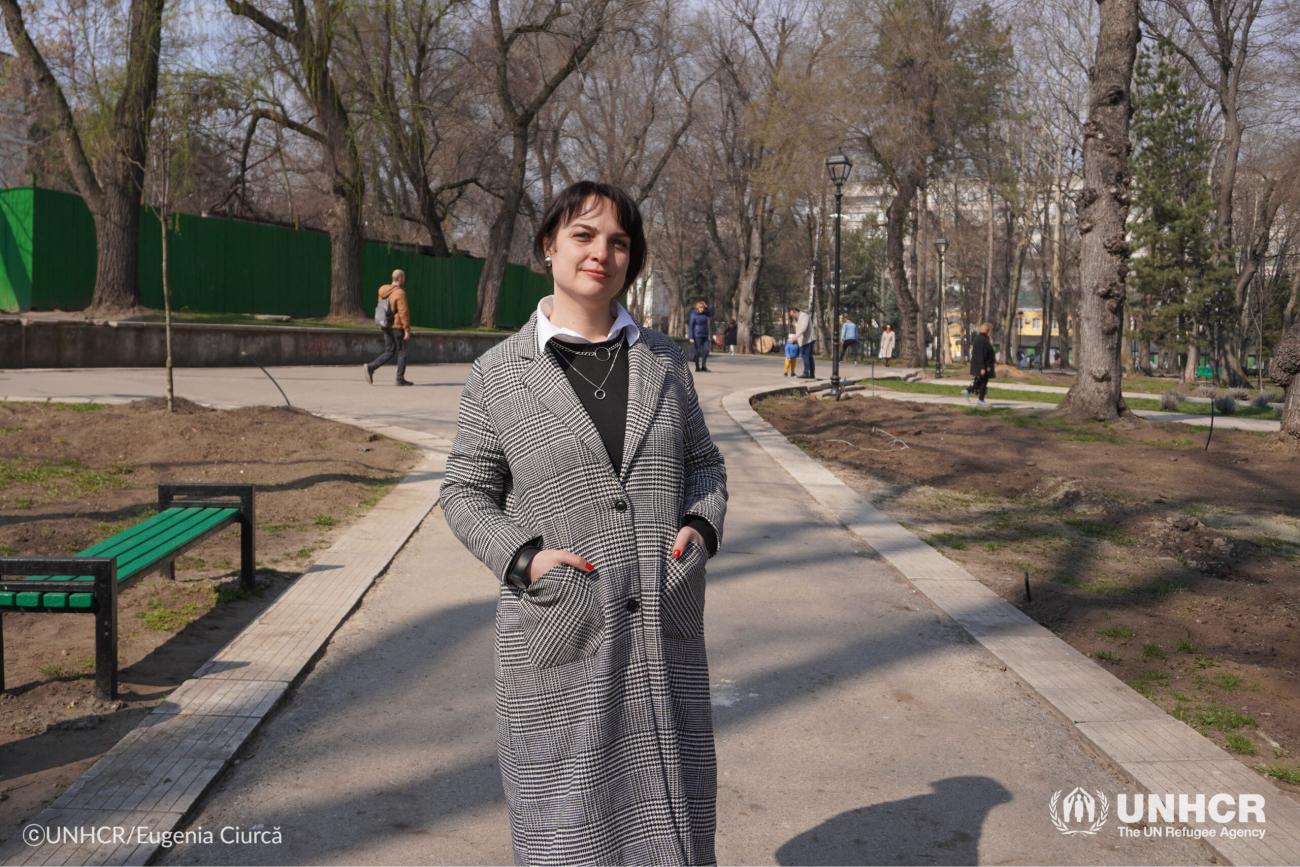Moldova’s temporary protection offers stability and protection to refugees from Ukraine

When Russia’s full-scale invasion reached her home in Mykolaiv, Tatiana did not want to flee. “I was hesitant to leave Ukraine,” she says.
"This is my home, my town.” But the war was too brutal for this 36-year-old mother of two to stand. “When the attacks began to intensify,” she recalls, “we couldn’t eat or sleep; I decided that I had to get my children out of this nightmare. I am a mother above all else.”
She left with her children for Greece to stay with relatives, intending to stay for only a month. One month became two, then three, then five, when she decided to move on. “Greece isn’t cheap, and we didn’t want to sit on our relatives’ heads either. Going back wasn’t possible because there was nowhere to go,” she says. She found safety and stability in the Republic of Moldova, and smiles as she recalls the feeling: “Once I arrived in Moldova, I knew that I no longer have to wander around.”
A key part of that stability is the Government’s recent activation of a temporary protection regime for Ukrainians. Temporary protection is a measure adopted by the Government to provide a more secure legal status and accompanying rights for refugees from Ukraine and their families; it lasts until at least March 2024 and may be extended for an additional year.
This legal framework appeals to Tatiana’s desire to follow the rules. “I am the type of person who likes to respect the law of the country, especially since I also have children,” she explains. She appreciates how temporary protection status includes not only a secure legal status but also basic rights – including services to help them access those rights in practice: “I will be able to take my family to the doctor, register my children in school, and feel protected.” Temporary protection also secures Tatiana’s right to work; she recently finished courses in Social Media Management and is looking for the opportunity to put her new skills into practice. Her story shows how Moldova’s temporary protection can help refugees begin to regain control over their lives while they figure out what comes next.
UNHCR has provided significant support to the Government in preparing for and implementing this temporary protection for refugees from Ukraine. In addition to technical input into the draft legislation, UNHCR’s support has helped bolster government capacity in key areas, like renovating and furnishing General Inspectorate for Migration (IGM)facilities, reinforcing registration capacity, procuring registration equipment, building a custom data system, and collaborating on a communication campaign to inform refugees about the process.
The integration of refugees into national systems helps in their preparation for any long-term solutions they may later pursue, whether it involves longer-term integration in Moldova, voluntarily returning home when circumstances allow, or something else. “Coming to Moldova was probably one of the best decisions for me and my children. We are far from living in luxury, we can’t afford many things, but the most precious thing is that we can go to bed without the sound of rockets or bombs,” said Tatiana.
Since the start of the refugee surge, UNHCR has provided Moldova with assistance and support totalling more than $100 million US dollars, working with the government and partners.
Russia’s invasion of Ukraine has pushed nearly 735,329 arrivals from Ukraine into the Republic of Moldova since February 2022, with over 101,835 refugees from Ukraine still staying within its borders, as 14 of May 2023. The vast majority of those who remain in Moldova are women, children, and older persons.
The UNHCR’s work in the Republic of Moldova is made possible with support from international donors who support the operation specifically, as well as those who contribute broadly earmarked and unearmarked funding.
Thanks to the European Union and Japan for supporting UNHCR’s 2023 programme in the Republic of Moldova.
Thank you, the top donors, of earmarked and unearmarked funding to UNHCR:
Belgium | Denmark | France | Germany | Ireland | Italy | Japan | Netherlands |Norway| Private donors Canada | Private donors Italy | Private donors Japan | Private donors Spain | Private donors Sweden | Private donors USA | Private donors Republic of Korea | Sweden | Switzerland | United Kingdom.





